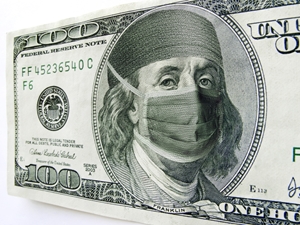
Though most Americans receive health insurance through employee benefits provided by their workplace, the Affordable Care Act has helped more people get covered, nearly 20 million more, based on data from the White House and U.S. Department of Health and Human Services.
Yet despite a greater number of people having the means through which to pay for medical services – something that many heretofore did not have – consumers are less than thrilled with their government-sponsored plans, according to a recent poll.
A mere 30 percent of Americans who have health insurance through the federal- or state-based exchanges are satisfied with their policy, based on newly released findings reported by consulting firm Deloitte.
Few confident of more expansive health care choices
A key selling point of the ACA – which was signed into law in 2010 by President Barack Obama, arguably the legislation's most fervent supporter – was that it would enable a greater number of people to seek health care from a variety of hospitals. But based on consumers' assessments in the two years since the ACA has been enacted, they're not finding this to be the case. The Deloitte poll found that only 1 in 4 customers felt confident they could get care when they need it. Additionally, just 16 percent said they felt financially capable of handling the cost of premiums should their health costs grow more expensive.
"Those are not high numbers," said Paul Lambdin, director of Deloitte's insurance exchanges and retail practices division, The Washington Times reported.
Opponents of the ACA have stressed how the law is misnamed, noting that premiums tend to be costly. More than two-thirds of respondents whose health coverage was through the exchanges said they felt like they paid too much, the Deloitte survey revealed.
Approximately 3,900 people participated in the poll.
The results of the report may leave some wondering if the ACA as a law is flawed or if the findings are an aberration, composed of individuals who are new to their plans, thus unfamiliar with how they work and what to expect. Lambdin indicated that more work needs to be done to determine this with any reliability.
"I think you'd have to go a lot deeper to really discern that at this point," Lambdin explained. "They're muddied together."
HHS: Premium growth down
For its part, HHS contends that the state- and federal-based exchanges have helped to lower premiums in 2015, at least in terms of the degree to which costs are increasing. Through the year thus far, premium growth for silver plans – the second-lowest priced health plan – was 8.4 percent less in counties with at least one new issuer versus other counties and 3 percent less for each new issuer that offered coverage through the marketplaces.
"The Affordable Care Act is working to increase choice and competition for consumers and keep premium growth in check," said Sylvia Burwell, HHS secretary. "This report shows that increased competition in a market, as occurred in most areas of the country in 2015, has an important impact on cost. That's good news for the economy, and helps more people find quality affordable health coverage that meets their budget."
What everyone can agree on is that the ACA has enabled more people to get health insurance. Between April and June, the nation's uninsured rate fell to 11.4 percent, down from approximately 12 percent when the last poll was taken, according to Gallup. At 43 percent, most people with insurance get it through the company that employs them. That's down from 44 percent in the fourth quarter of 2013. During that period, the uninsured rate peaked at 18 percent.





